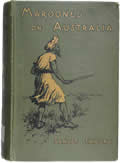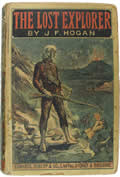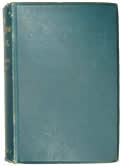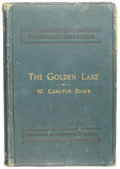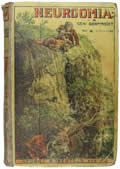Summary
Popular colonial science fiction combines elements of realism and fantasy to offer alternate versions of the social, physical or historical landscape, often either magnifying or distancing existing qualities of the local scene in order to explore or critique particular aspects of colonial existence. Lemurian novels such as Carlton Dawe's The Golden Lake (1890), J F Hogan's The Lost Explorer (1890), G Firth Scott's The Last Lemurian (1898) and J M Walsh's The Lost Valley (1921) exploit the imaginative possibilities of colonial Australia's unexplored regions to produce romances of hidden riches and lost civilisations-sometimes clashing violently with indigenous populations along the way. Utopian novels such as Robert Ellis Dudgeon's Colymbia (1873) and George McIver's Neuroomia: A New Continent (1894) explore colonial culture through visions of strange, parallel civilisations in surrounding territories including the South Pacific and Antarctica. Historical fantasies including Ernest Favenc's The Secret of the Australian Desert (1895) and Marooned on Australia (1897) imagine new versions of Australia's past, while futuristic political thrillers such as Kenneth MacKay's The Yellow Wave: A Romance of the Asiatic Invasion of Australia (1894), and William Lane's White or Yellow: A Story of the Race War of 1908, which was serialised in the Boomerang in 1888, present images of racial invasion and social turmoil. The aspirations and anxieties of a developing nation's sense of cultural identity emerge vividly through many of these works, which share a preoccupation with the strangeness of the colonial landscape, the unsettling vastness of its unoccupied territories and its seeming lack of a historical or mythical past.
